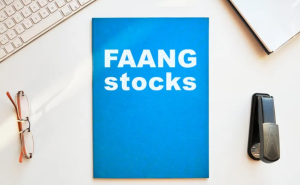
A government shutdown is a situation where the U.S. federal government suspends its non-essential operations due to the failure to pass a budget or continuing resolution. While this political deadlock directly impacts government employees and services, it can also have ripple effects on the stock market. In this article, we will explore what a government shutdown means for stocks and how investors should navigate this uncertain period.
**1. Uncertainty Breeds Volatility:
The primary impact of a government shutdown on the stock market is increased volatility. Investors dislike uncertainty, and a shutdown can create a cloud of doubt about the government’s ability to manage its finances and pass essential legislation. This uncertainty often results in erratic market movements.
**2. Economic Indicators and Data Delays:
During a shutdown, government agencies responsible for releasing critical economic data are affected. Delayed or missing economic indicators can hinder investors’ ability to gauge the state of the economy. For example, reports on employment, GDP, and consumer sentiment may not be available as scheduled, making it challenging to make informed investment decisions.
**3. Sector-Specific Impacts:
Not all sectors are affected equally. Companies with government contracts, especially in defense and healthcare, may experience disruptions in their businesses. Additionally, government-regulated industries such as banking and transportation can be affected as regulatory agencies furlough employees.
**4. Treasury Bonds and Interest Rates:
Investors often seek the safety of U.S. Treasury bonds during times of market uncertainty. Consequently, the demand for these bonds may increase, leading to lower yields. When Treasury yields decline, it can influence interest rates on other fixed-income assets and affect the profitability of financial institutions.
**5. Consumer Sentiment:
A government shutdown can erode consumer confidence. The fear of delayed government services, furloughs, and economic instability can lead to reduced consumer spending. This is especially pertinent for retail and consumer-facing companies, whose stocks may suffer during such periods.
**6. Market Timing and Opportunistic Strategies:
For some investors, a government shutdown can represent an opportunity. They may adopt a contrarian approach, looking for undervalued assets while others panic. However, this strategy can be risky, and timing the market is notoriously difficult.
**7. Long-Term Investment Perspective:
Experienced investors often recommend maintaining a long-term perspective. Market fluctuations due to government shutdowns have historically been temporary. A diversified portfolio and patience can help weather these short-term storms.
**8. The Role of Political Resolution:
The duration and severity of the government shutdown can depend on the political climate. Stocks may react positively once an agreement is reached, and government operations resume. However, recurring shutdowns or protracted political standoffs can prolong market uncertainty.
A government shutdown introduces elements of uncertainty and volatility to the stock market. While investors may experience short-term fluctuations and specific sector impacts, it is crucial to maintain a diversified portfolio and a long-term perspective. Historically, markets have rebounded once government operations resume, emphasizing the importance of staying the course and not making impulsive decisions based on short-term events. Investors should monitor the situation, stay informed, and be prepared to adapt their strategies if necessary.













